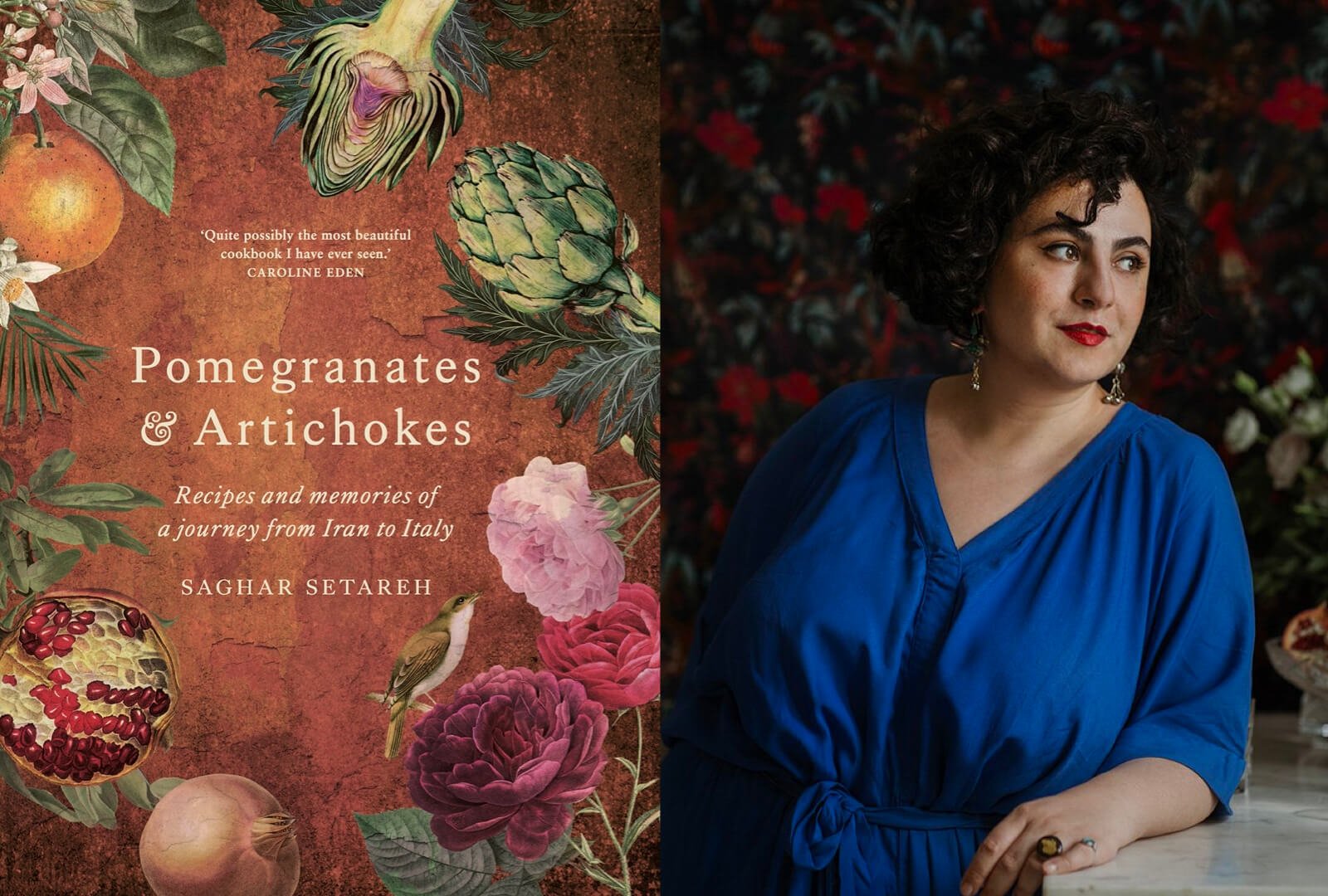Behind the Cookbook: Madhur Jaffrey's Indian Cookery
Originally published in 1982 and accompanied by a TV series of the same name, Madhur Jaffrey's Indian Cookery is reissued this month to celebrate its 40th anniversary. We are delighted to be a be able to offer this iconic cookbook as an ‘à la carte’ add-on for ckbk users.
This updated edition features eleven new recipes along with a foreword to mark the anniversary. The book remains an essential guide to the cooking of the region, reaching across the generations to deliver dependable Indian recipes.
Madhur Jaffrey’s writing and TV work ignited a generation's passion for authentic Indian cuisine. In 2023 she received both the James Beard Foundation and the International Association of Culinary Professionals Lifetime Achievement awards. We caught up with Jaffrey to find out which recipes remain her particular favorites and to hear about her career's joyous diversity, driven by her love for acting, writing, and cooking.
Q It is no overstatement to say that Madhur Jaffrey’s Indian Cookery inspired a whole generation to cook real Indian food. With the 40th anniversary edition of this book now available, we would love to know which of the book's original recipes are the most special to you and why?
Here are three….
The Lake Palace Hotel’s Aubergine Cooked in the Pickling Style (Baigan Achari): It is a stunning recipe that I got from a stunning palace, right in the middle of a stunning lake in Udaipur. I love to make it for my friends, and for myself, and eat it with Indian breads.
Potatoes with Sesame Seeds (Til Ke Aloo): I love everything with potatoes! This has a crisp aspect to it which makes it even better.
Chicken in a Butter Sauce (Makhani Murgh): This is a dish I ate as a teenager in the then newly opened Moti Mahal restaurant in Delhi, which served tandoori foods and naan for the very first time. It blew our minds then and I still love it!
Q There is so much more knowledge about Indian cuisine in the western hemisphere since the book was first published in 1982. What would you say are the main differences in how Indian food is viewed now to back then?
The English know much more about regional Indian foods now. They can distinguish between South Indian food, Bengali food and Punjabi food.
Q You became known as the "actress who could cook" and in the 1960s your food writing started appearing in various publications. Tell us about how you learned to cook while living in London and training as an actor, and how your cooking career took off.
While eating my lunch at The Royal Academy of Dramatic Arts, I would dream of my mother’s Indian food - which we had for breakfast, lunch, and dinner in Delhi. I finally asked her in a letter to send me a few simple recipes for dishes that I dreamed about. (This included: potatoes cooked with asafoetida, cumin and tomatoes; goat cooked with whole spices like cardamom, cinnamon, cloves, black peppercorns, grated nutmeg and fresh ginger; and cauliflower cooked with potatoes.) I started cooking and serving these dishes to friends and soon I had almost enough recipes for a cookbook. I was approached by a freelance editor and my career as a cookbook author began.
Q What are your strongest memories about filming the series that accompanied this book?
It was such a joyous time. I became great friends with the director and producer (Jenny Rogers and Jenny Stevens). We were all doing this for the first time and kept exploring new and wonderful ways to present the recipes. When the series was aired we could not have had a more joyous and excited audience who cooked the food almost as soon as the episode aired. They wrote us marvellous letters to encourage us to go on cooking. We felt we had touched the heart of England.
Q Can you share any kitchen mishaps that happened during the filming of this series or during later TV series?
I remember one day I had soaked basmati rice sitting in a strainer. It had somehow got packed very tightly without my realizing it, and when I got to emptying it into a pot, it went all over the hob instead!
Q At about this same time in the 1980s, we understand that you met Ken Hom at a party in New York and recommended him to the BBC. What is it that you admire about his TV presence and his cooking?
What I noticed first about Ken was that he was very good looking and utterly charming. I thought he would be great on television. (He also happened to be a very good cook who came from a restaurant family.)
Q What would you love Ken to cook for you now and what would you cook for him?
I would eat anything he cooks! And I would make for him an elegant biryani.
Ken Hom: the man who showed the British how to cook Asian food and a good friend and colleague of Madhur Jaffrey
Q As an advocate for cultural exchange through food, how do you think food can bridge gaps and promote understanding between different cultures and communities?
If we can enjoy each others’ food, surely we can find the time to enjoy each others’ company.
Q Tell us about some of the new recipes that feature in the new 40th anniversary edition and why they have been added to the canon.
Baby Goat Chops with Fenugreek: I felt there were not enough recipes for goat meat, which is so readily available from halal butchers across the UK. Also, other ingredients such as dried fenugreek are easily available for purchase.
Tomato Rice: It has its origins in South India, but there are so many cooking shows now featuring this that all of India is cooking it, with local variations. You’ll find my version of that recipe in this book.
Moong Dal with Three Possible Tarkas: A basic recipe with three different ways to finish it to give different tastes.
‘Khichri’ (Moong Dal and Rice Porridge for adults and for babies), which I felt important to include as people want to feed their children what they are eating.
Hot Sweet and Sour Chicken with Apricots: People love sweet and sour dishes and this is amongst the best of them.
Red Pepper and Ginger Soup: I have been making some version of this soup since I was thirty years old. This is the latest one.
Q Throughout your illustrious career, what is one dish that you always enjoyed cooking the most, and why does it hold a special place for you?
The Tomato Rice because I just love it.
Q Looking back now, which of your books are you most proud of and why?
All of them. They are all my children!
Above: Madhur Jaffrey cooking Rogan Josh for her 1982 TV series
Q Over the course of your career, is there a specific cuisine or cooking technique that you have always wanted to delve deeper into, but haven't had the chance to explore fully? What intrigues you about it?
Japanese food. I’ve always loved its sparseness and control. I’ve explored it to a degree but not spent enough time with its particular aesthetic.
Q During moments when you need comfort or when feeling unwell, what is your personal go-to comfort food that never fails to uplift your spirits or provide solace?
Basic Moong Dal with three possible Tarkas served with plain basmati rice
Q If you could teach the whole world how to make one Indian dish perfectly, what would it be and why?
I would love to teach people how to make and appreciate a true biryani.
“I have the original version of this book, published in 1982 — its pages are well worn and smudged with turmeric and ghee — a tribute to its enduring appeal.”
“200 pages of vivacious education”
“‘Madhur Jaffrey changed everything’”
Madhur Jaffrey's Indian Cookery is now available on ckbk as an optional à la carte title for a one-off payment. The book is available in all regions at a limited-time discounted price of £8.99 in the UK and $9.99 in the US, with similar discounts in other markets (that’s cheaper than the Kindle edition!)
Find thousands of popular Indian recipes on ckbk such as this Spinach and Chickpea Curry from 30 Minute Mowgli. Or browse our bookshelf of Indian cookbooks.
ckbk caught up with Stuart Ralston for a candid glimpse into his culinary world.
We speak to the author whose book Pomegranates & Artichoke spans the cuisines of Italy and Iran.
The Italian baker guides us the seven cookbooks of his which are now available in full on ckbk







